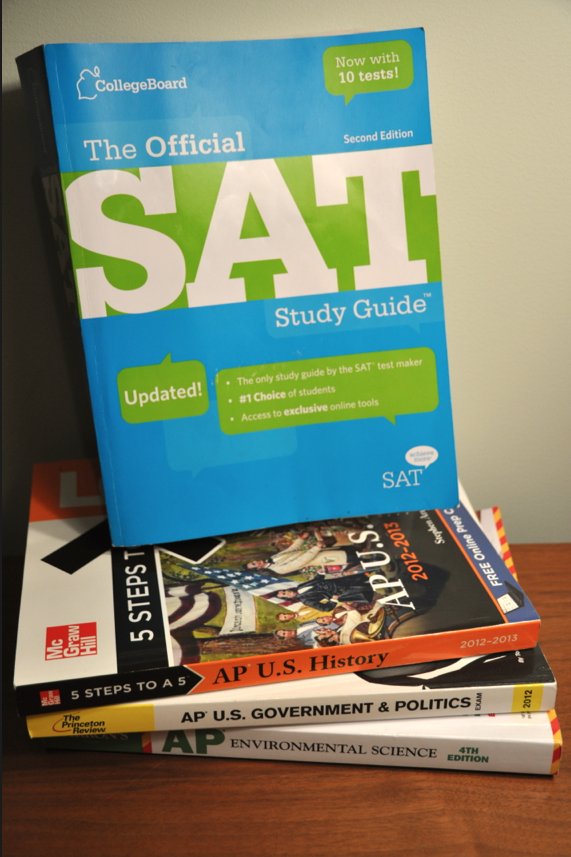When walking down almost any hallway at Staples High School, it is quite difficult not to spot a student toting a Barron’s, Princeton Review, or Five Steps to a Five AP review book in their arms.
“When I used an AP review book, they made my grades better for sure,” said Jake Petterson ’12, who took Economics, Statistics, and Chemistry during his junior year.
But herein lies the real question: do these supplemental materials actually help students to achieve a better grade both in their AP class and on the exam at the end of the school year? After all, the College Board—the organization which administers Advanced Placement exams, as well as the SATs, PSAT, and subject tests—does not endorse the use of AP review books.
Gertrude Denton, an AP Statistics teacher, says she believes that students who employ the use of these supplemental materials do better on the AP exam and in her class. In fact, she even recommends that her students purchase and utilize the Barron’s review book for the class.
“Barron’s does a good job of approximating the kinds of questions that students will see on the AP Statistics exam,” Denton said.
William Jones, an AP Chemistry teacher, echoes Denton’s notion that students benefit the most from the practice questions provided in the AP books, if from anything in them at all.
“You will see on every AP test certain questions on certain topics that can be answered in a relatively rote or ‘patternistic’ kind of way, even if the pattern is a difficult one for most people to see or follow, such as aqueous equilibria in Chemistry,” Jones said.
Jones adds that because the most helpful aspect of AP review books are the practice questions included in them, it may actually be more difficult for students to prepare for AP English or social studies courses.
“To some extent, you can prep better for science and math standardized tests than you could for English, which is more of a general skill or ability that is both somewhat innate and somewhat learned over time,” Jones said. “That said, doing practice questions for reading or English standardized tests is still definitely most helpful.”
Amanda Wildstein ’13, who took AP Biology during her sophomore year, disagrees with Jones, and finds that the CliffsNotes review book she used for the class was not the best form of preparation for the class and the exam.
“I found the book most useful for quick chapter summaries,” Wildstein said. “Other than that, the multiple choice practice questions in the book did not accurately reflect the difficulty of the tests in the class or on the actual AP exam.”
However, AP French Language and Culture teacher Natalie Clay finds that a specific brand—Barron’s—helps both herself and her students delve more into the subject matter of her class.
“As long as the AP books I use are consistent with the objective of the exam—and Barron’s was—I have no problem with them,” Clay said.
Clay also believes that while AP review books can help students improve their grades on the AP exam, there is somewhat of an inevitable limit to the score a student will receive if he or she bases his or her learning solely from the review book.
“For the few students I saw using the Barron’s book for the AP French exam, these students all passed, but did not get the highest grades of a 4 or a 5,” Clay said.
Even if AP review books do ultimately help students with their grades, the question of which brand works best for each class still remains.
“Basically, I think all of the AP prep books out there have decent practice questions,” Jones said. “That’s really where their benefit lies.”














































